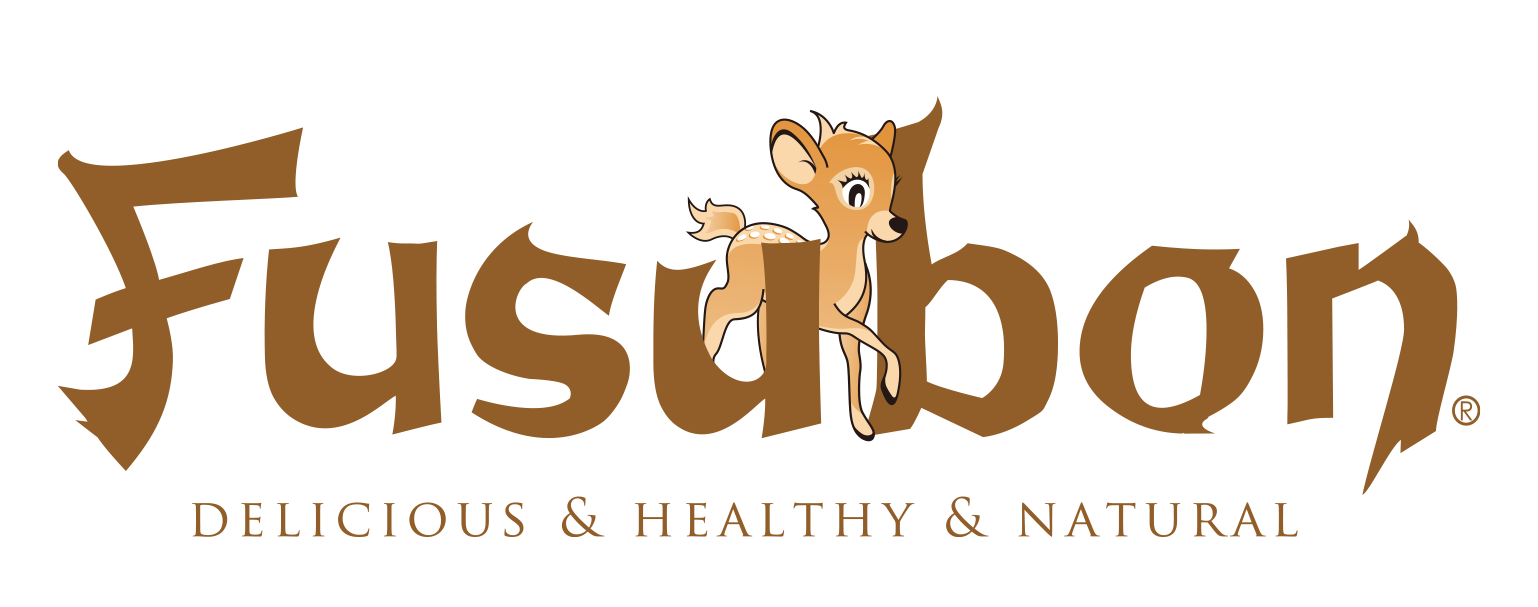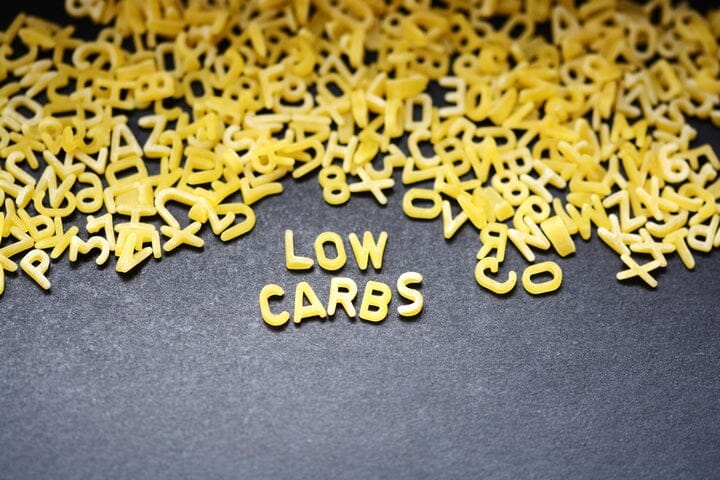Hello! I'm the owner of Fusubon.
This time, we will summarize the basics about carbohydrate restriction.
It is often thought that the purpose and effect of restricting carbohydrates is to lose weight, but dieting is merely a by-product and there is a much bigger purpose and effect.

It helps to invigorate blood vessels, prevent glycation of cells, and help you stay youthful and healthy forever .
Reducing the fluctuation of blood sugar levels can help prevent various diseases (strokes and myocardial infarctions) caused by repeated inflammation of blood vessels. It also has various other effects, such as preventing diabetes, preventing acne and other pimples, eliminating post-meal drowsiness, and improving anti-depressant symptoms.
This time, I will try to leave out as much theory as possible and explain things in an easy way so you can get started.
Tip 1: Eliminate refined sugar
 Eliminate refined sugar first
Eliminate refined sugar first
The basis of carbohydrate restriction is to control blood sugar levels, so the first thing you should do is to stop consuming sugar .
When it comes to limiting carbohydrates, I believe you should control your intake according to your goals, physical condition, and environment.
In that sense, it is better to stop eating regular bread because it contains sugar, but when it comes to rice and sugar-free noodles, there is no problem with eating them if you use brown rice or eat vegetables, protein, and fat first (carb-last). I will write more specifically below.
Eliminate sports drinks, soft drinks, juices, sweets, and desserts
 Sports drinks are full of sugar
Sports drinks are full of sugar
First, stop drinking sugary drinks, sports drinks, soft drinks, sweets, and desserts.
Sugar dissolved in water (liquid sugar) is particularly quickly absorbed and can cause a sudden rise in blood sugar levels. Sports drinks, which contain amino acids and ingredients similar to bodily fluids, have an image of being healthy, but most products contain large amounts of sugar.
It's not much of a problem when you are exercising, but you should avoid drinking it as a health drink if you don't normally get much exercise.

Also, energy drinks that use artificial sweeteners (sucralose, acetylcholine potassium, aspartame) have become popular recently, but it is said that artificial sweeteners can stimulate insulin secretion and damage the pancreas, as well as promote the production of active oxygen when insulin is secreted, so it is better to only consume them occasionally rather than drinking them unlimitedly just because they do not raise your blood sugar level.
Furthermore, 100% orange juice and apple juice are often thought to be healthy because they contain no sugar, but they contain a lot of fructose and are easily stored as neutral fat, so if your goal is to lose weight, avoid them. Also, if you want to eat fruit, try to eat it whole, chewing it thoroughly, rather than drinking it in juice form.
Point 2: Eat healthy fats
 Eat plenty of quality fats without worrying about calories
Eat plenty of quality fats without worrying about calories
It is believed that fat = high calories = "I don't want to eat it because it will turn into fat," but that is an argument that ignores metabolism. With carbohydrate restriction, you avoid calories from carbohydrates and instead consume calories from fat and protein.
With regard to fats, advances in nutrition over the past 10 years have shown that neither saturated nor unsaturated fatty acids are harmful to the body, as long as they are not artificially produced fats such as trans fatty acids or oxidized fats .

For example, the title of the March 26, 1984 issue of TIME was "Cholesterol --And now the bad news...", describing fat and cholesterol as the villains.
On the other hand, the June 23, 2014 issue of the same magazine TIME wrote the exact opposite of Eat Butter. It was discovered that cholesterol is not the bad guy, but that cholesterol simply gathers in the inner walls of blood vessels to repair inflammation caused by sudden rises and falls in blood sugar levels due to excessive sugar intake.
Research from the National Cancer Center has also shown that the more high-quality saturated fatty acids you consume, such as meat fat and butter, the lower your risk of stroke.

Among fats, it is essential to consume essential fatty acids, which are necessary for creating cell membranes in the body.
Among the unsaturated fatty acids found in abundance in fish oil, perilla oil, flaxseed oil, chia seeds, etc., omega-3 fats are an essential fatty acid that the body cannot produce and is therefore prone to shortage. They are also sensitive to heat and easily oxidized, so it is best to supplement them with supplements.
In addition, you also need to actively take in medium-chain fatty acids, which will help you use your stored fat as energy.

Medium-chain fatty acids are saturated fatty acids that are medium in length, such as those found in coconut oil. Furthermore, MCT oil is made by extracting medium-chain fatty acids from coconut oil. They are used directly as energy about 3 to 4 hours after ingestion, helping to trigger the use of fat in the body as energy.
Japan national soccer team player Nagatomo also apparently takes MCT oil three hours before a match. Compared to coconut oil, it is tasteless and odorless, so it is a very easy-to-use fat that can be put into coffee or sprinkled on salads, so please give it a try.
As mentioned above, it is important to actively consume good quality fats. This is the second point when restricting carbohydrate intake. A low-fat menu is not only a calorie-restricted diet that makes you tired easily, but also unsavory, so it is difficult to continue.
When you cut down on carbohydrates, you may feel unsatisfied, but by consuming fat instead, you can taste sweetness and feel satisfied and delicious. The point of actively consuming fat is also a major difference between a carbohydrate-restricted diet and a calorie-restricted diet.
Tip 3: Eat plenty of high-quality protein
 Eat lots of quality protein
Eat lots of quality protein
I think most people today are aware that consuming protein helps build muscle. However, I don't think many people have a clear understanding of how much protein you should consume, what type of protein you should consume, and how to ensure that it is absorbed efficiently, so I would like to explain.
How much protein should you eat while restricting carbohydrates?
In the ketogenic diet, you should take your body weight in kilograms and multiply it by 1.2 to 1.6, then add the grams to your diet, so a 50kg woman would need to take in 60g of protein. If you get your protein only from meat, you would need to eat 300g of meat, which is a pretty tough number if you're not using protein shakes or other foods and just eating every day.
Therefore, at Fusbon, we would like to recommend a minimum of 1x the amount of protein you consume from your diet. For a 50kg woman, that is 50g of protein , so if you are getting protein only from meat, you would need to consume 250g of meat.
Of course, you can also get it from eggs and natto, and two eggs and one fusubon will give you about 20g of protein, so it would be realistic to get the remaining 30g from animal protein.
If you want to consume more than that, you can easily consume protein by dissolving about 20g of whey protein in water.
<Guideline for calculating protein amount>
Meat and fish: 1/5 of the total. Example: 100g of meat contains 20g of protein.
Eggs: 6g each
Fusubon...about 10g or more per piece
Soybeans: 1/10 of the total. Example: 10g per 100g
Soy milk: 7g per 100ml
1 pack of natto: 6.6g per 40g
What types of protein should you eat when restricting carbohydrates?

Just like fat, the idea that plant-based = healthy and animal-based = unhealthy is simply an image or misconception, and is incorrect. If anything, animal-based protein is more nutritious, containing iron and vitamin B.
Of chicken, pork, and beef, beef is the most nutritious. It is said that eating protein in rotation reduces the risk of delayed allergies, so we recommend rotating animal protein, including fish.
Eggs also have a perfect amino acid score and are rich in nutrients such as vitamin E, so try to eat at least two eggs a day.
It is difficult and cost-effective to get enough protein from animal protein alone, so it is recommended to supplement it with soy products or whey protein.
Things to be careful about when taking protein

Proteins such as meat and dairy products contain phosphorus and sulfur, which become acidic when they are incinerated and dissolved in water. To prevent urine from becoming acidic, calcium is dissolved from bones. This is because calcium becomes alkaline when dissolved in water.
When urine becomes acidic, uric acid stones due to hyperuricemia, hypercalciuria, and calcium crystals due to hypercalciuria become more likely to occur.
Therefore, to prevent your urine from becoming acidic and to prevent calcium from dissolving from your bones, be sure to also consume alkaline foods such as vegetables and seaweed that contain potassium, sodium, and calcium .
When restricting carbohydrates, it is extremely important to take in vitamins and minerals, so do not simply assume that ``reducing carbohydrates = carbohydrate restriction.''
Tip 4: Take vitamins and minerals
 Supplement your vitamins and minerals
Supplement your vitamins and minerals
When restricting carbohydrates, you need to use lipids for energy.
In order to use lipids in the body as energy, you first need to limit your intake of carbohydrates, deplete the energy derived from carbohydrates, and induce gluconeogenesis (the process of producing sugar from oxaloacetate and protein) in the liver (and kidneys).
This causes a shortage of oxaloacetate in the liver, making it difficult for the citric acid cycle to function. As a result, there is an excess of acetyl-CoA, which is the source of energy, and the acetyl-CoA in the liver becomes ketone bodies and is used by cells throughout the body .
Ketone bodies are converted back into acetyl-CoA in each cell and used to produce energy (ATP) through the citric acid cycle.

This state in which ketone bodies are used as energy is called the ketone body cycle in the ketogenic diet industry.
For the above reasons, unless you are restricting carbohydrate intake, it is difficult to convert fat in the body into energy. Therefore, reducing carbohydrate intake is the first priority, but in fact, this alone will not allow fat to be converted into energy efficiently.
This is because vitamins and minerals such as B vitamins, iron, and magnesium function as catalysts to operate the ketone body cycle smoothly. Of course, the above vitamins and minerals are also necessary for normal carbohydrate metabolism to operate the citric acid cycle smoothly, but this is even more so for lipid metabolism, in which the citric acid cycle is the main mode of action.
If you are unable to get enough B vitamins and magnesium through your diet, be sure to take supplements. Women are often iron deficient, so you should also actively take iron supplements (especially chelated iron is recommended).
Point 5: Use low-carb bread and sweets

Make the most of low-carb bread
When restricting carbohydrates, you tend to eat monotonous meals such as salads and meat, and after about a month you may get bored of the diet and be unable to continue with the carbohydrate restriction.
I also had success for a while after I started limiting my carbohydrate intake, but after a few weeks, I started craving carbohydrates.
At that time, I learned about low-carb breads such as bran bread and soy flour bread, but there was nothing tasty and all the bread available used margarine and artificial sweeteners as ingredients, so I started making my own bread, and that was what led me to start Fusubon.
Also, since eating only salad and meat can often lead to constipation, it is recommended to make good use of bran bread to consume dietary fiber, increase the volume of food, and improve bowel movements.
summary
Characteristics of calorie restriction

○ Low intake of fat and protein (not feeling satisfied after eating)
○ Not feeling full, lack of energy and fatigue, loss of muscle mass, tendency to rebound, low body temperature (weakened immune system)
You may lose weight temporarily, but there is little benefit to restricting calories so stop!
Characteristics of carbohydrate restriction

○ Actively consume fats, proteins, vitamins, and minerals, and consume normal amounts of calories. If you cannot get enough of them through food, be sure to take omega-3, vitamins (B vitamins, vitamin C, vitamin E), and minerals (magnesium, calcium, iron) through supplements.
○Feel full, don't get tired easily, don't get sleepy after eating, maintain muscle mass (increases body temperature and boosts immunity)
If you have failed at carbohydrate restriction, I'm sure you will be successful if you keep the above points in mind. This concludes the Fusubon owner's summary of carbohydrate restriction tips.
see you!

